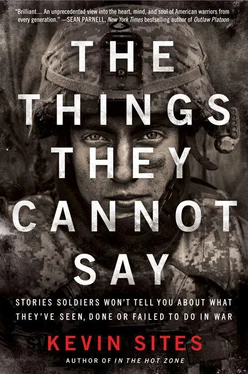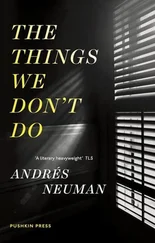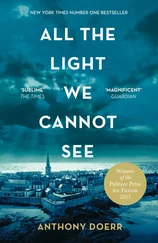And he tells me about the night in which he nearly killed a man. Unable to sleep, Sperry had been sitting up watching television when he heard something slam into his house. When he went to investigate he saw a man walking up to his door. Sperry immediately sprang toward the man, tackled him and held the knife he always carried over the man’s heart.
“I could’ve plunged it in him at any moment,” Sperry says, recalling the incident. But then the guy pointed toward a black cylinder in the yard. His tire. He had been making a turn on Sperry’s street when it came off the rim and rolled against the door of Sperry’s house. He had simply come to retrieve it. What he found instead was an enraged ex-Marine intent on keeping his security perimeter from being breached.
Sperry released his grip on the man’s shirt and sat back on the grass. The man grabbed the tire and sped off into the night on three tires and a rim shedding sparks. Sperry sat there—he can’t remember how long, maybe a few minutes or maybe a few hours—wondering what had happened to him, how every noise and movement had become a threat to him and his family.
Now, back here in this place, Sperry gets up from the dining room table, goes to the cupboard and gets the ingredients he needs to make Hannah a peanut butter and jelly sandwich. He does this while telling me all the drugs he still has in his medicine cabinet, the stuff he needs to take daily just to function. Cathy sits quietly, uncomfortable. It took a long time for all of us to get here, to be sitting around his kitchen table talking. Tracking him down was a perpetual challenge. Then he would pop up on my e-mail or in a text message. There was always some kind of crazy excuse that told me he was still struggling: a car accident where he got T-boned and the phone was destroyed, the dog chewed the phone charger, and then he texted me one day to say he couldn’t make our telephone interview that day because his mother had died. That was true, as true as any of the other excuses may have been as well. His mother, with whom he always had a strained relationship, with a few exceptions, had contracted flulike symptoms and within a few days was dead. Sperry explained it to me later as “some kind of complications from the swine flu.” I asked if there were drugs or alcohol involved and he said he didn’t think so, but that she had had a hard life and he wanted to leave it at that. He said that he had forgiven her in the end and that she had learned from her child-rearing mistakes with him and his sisters and had given his younger half brother a wonderful childhood, filling him with goals and aspirations. During that time after his mother died, he understandably disappeared for nearly a month before we talked again.
As we sit at the Sperrys’ kitchen table, there are moments when the conversation is fluid and we laugh and moments when I feel I’m providing some value to both of them, closing some time or informational gaps by showing them the video of his injury in battle. But there are other moments when I feel I am just a reminder of the beginning of his fall, just an annoyance that everyone, even the dog, wishes would leave.
But everything we talked about, all the ponderings of the past, seems to have led up to this one powerful and uncomfortable truth: Sperry says he no longer feels love, not for his wife, nor—as he looks at Hannah pressing Play-Doh into the table—his beautiful blond-haired daughter.
Whether it was the small piece of metal that pierced his skull, slicing into his left frontal lobe and excising the very bit we insist makes us human, or the cumulative toll of all he had to see and do in his war, James Sperry says he cannot feel love.
“I felt love before,” he says insistently, “but now I just feel numb.”
He said as much to the local newspapers when they asked him about his injuries when he first came home. “I don’t love my wife,” he told them, though he didn’t mean for it to sound as cold as it did. She wasn’t at all happy about that, he admits. Cathy looks at him as though she’s considered these words so many times before and has come to peace with them.
“He’s going to need therapy to feel those emotions,” she says with a shrug. “I’d like to see him do more therapy,” she says. “When he actually seems happy it’s just stoned happy, it’s not real happiness.” But Sperry has resisted counseling, feeling that nothing more can be done.
“I can tell them how much I miss my friends and cry like it’s a confessional,” Sperry says, defending himself. “But I feel there’s nothing a doctor can tell me that’s going to reboot that part of my brain.”
I point to Hannah. “But do you feel the way other fathers feel about their daughters? Do you love her?”
“She’s my responsibility,” he says matter-of-factly. “I have to be there for her, but there’s no warm and fuzzy, no tingles.”
Sperry says he knows things will always be different, but he believes there’s still some type of life out there for him. He had wanted to go into law enforcement after the Marines, but his cognitive abilities have been so severely diminished he knows he won’t qualify. Standardized tests he’s taken since returning from war show him in the bottom percentiles. He tried going to school when he came home but just couldn’t concentrate. He used to be smart, he says, and now he just doesn’t know who he is.
He also still has nightmares, wrapping past and present together in fearful imagery. In one, he’s driving the family car loaded with Hannah, the dogs and his sister’s children down Fallujah’s treacherous streets.
He thinks he can stay stable if he stays on his medications, doesn’t return to heavy drinking, learns a trade and raises his daughter. He likes spending time with his daughter and his sister’s children, making them lunches, taking them to and from school.
“Children are innocent. They don’t know the cruelties of the war.”
“Will you tell her your stories one day?” I ask.
“She knows Daddy was a Marine,” he says. “That’s all the stories she probably needs to know about that.”
Sperry knows his own innocence was lost in war.
“I was so young and naïve. I’m in high school playing video games, but at seventeen you don’t really know what happens. We’re fearless at that age, but now [after war] we become petrified of death. Everyone I’ve been with [in Iraq] has been killed themselves or are now really messed up.”
In The Warriors , J. Glenn Gray wrote that the only way some soldiers, like Sperry, lose this naïveté is through their own physical injury. “In most of these soldiers, the sources of their relationship toward death—as a reality for others only—is not too difficult to discover. They have simply preserved their childish illusion that they are the center of the world and are therefore immortal… Perhaps their own wounding is necessary. The look of shock and outrage on such a soldier’s face when that happens is likely to be unforgettable. At one cruel stroke he loses forever the faith in his physical immortality. His psychological adjustment to the new world he has to inhabit is certain to be harder than the physical recovery from his wounds.”
After our Christmas meeting, my correspondence with Sperry over the next year is sporadic and shows his significant mood swings, likely from continued drug and alcohol use. I’m familiar with this, recognizing the chemically induced patterns of emotional highs and lows in myself. In some e-mails he seems helpless, in others defiant.
February 21, 2010 (e-mail from Sperry to me)
Sorry I have been really struggling with all my demons lately. I keep numbing myself up with weed, pills, and alcohol. I have been thinking about trying to tell the doctors at my next Marine Corps. doctor evaluation that I am totally fine and trying to release me. I was a great saw gunner and they need my talents over there. I hate being on the sidelines watching other boys and men fight this war. I can walk and pull my trigger finger. I think I am addicted to combat. Sorry for all the delay i have been numbing myself pretty good and trying to forget about how fucked up this world is. I want to be there for you as well I know you know the same pain. How do you cope with pain and mind-racing? I think I might check myself back in a VA hospital but if i do that there go my chances of the army. I hate being on the sidelines, I use to be important now everyone takes me for granted. I am so lost…… Peace
Читать дальше












